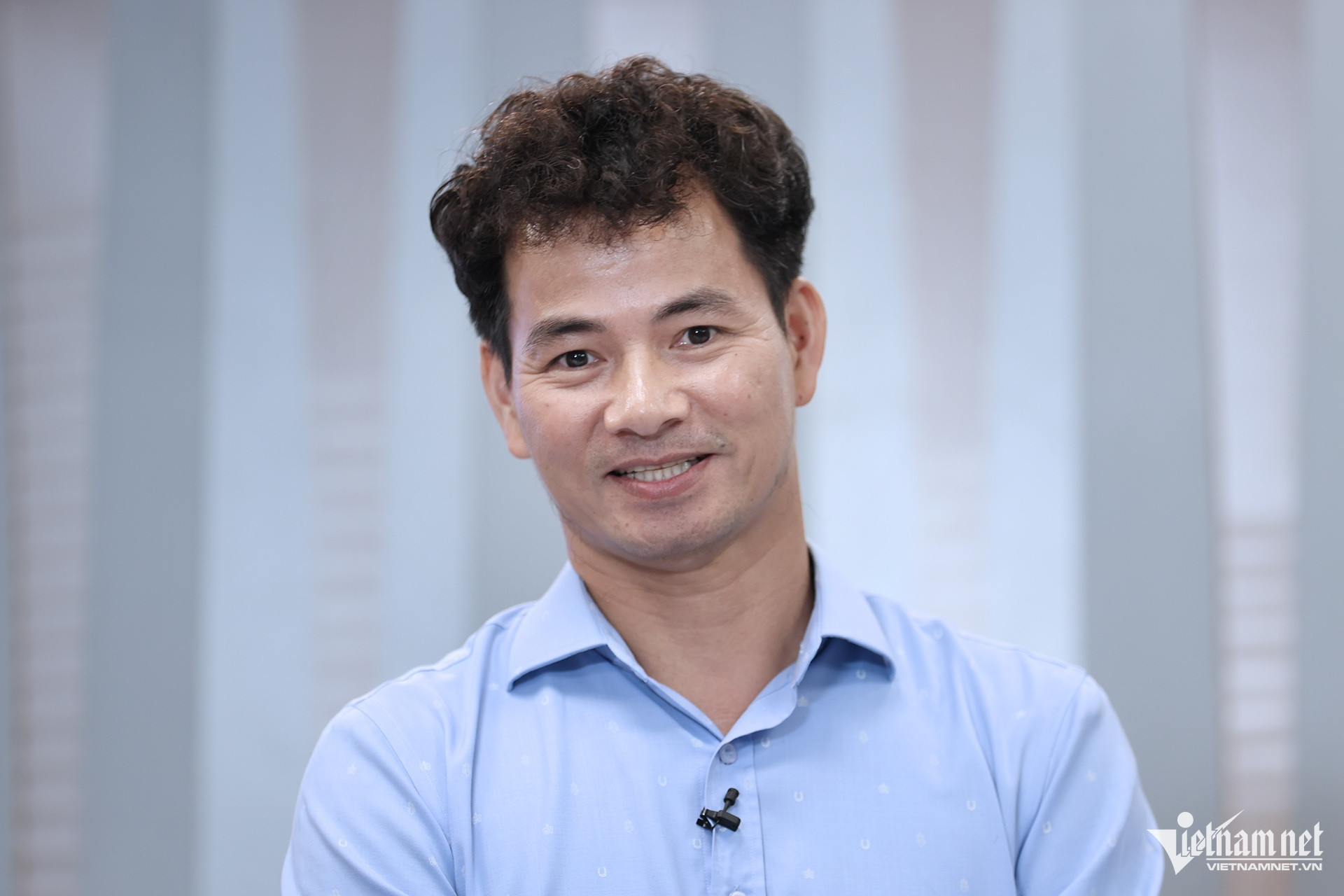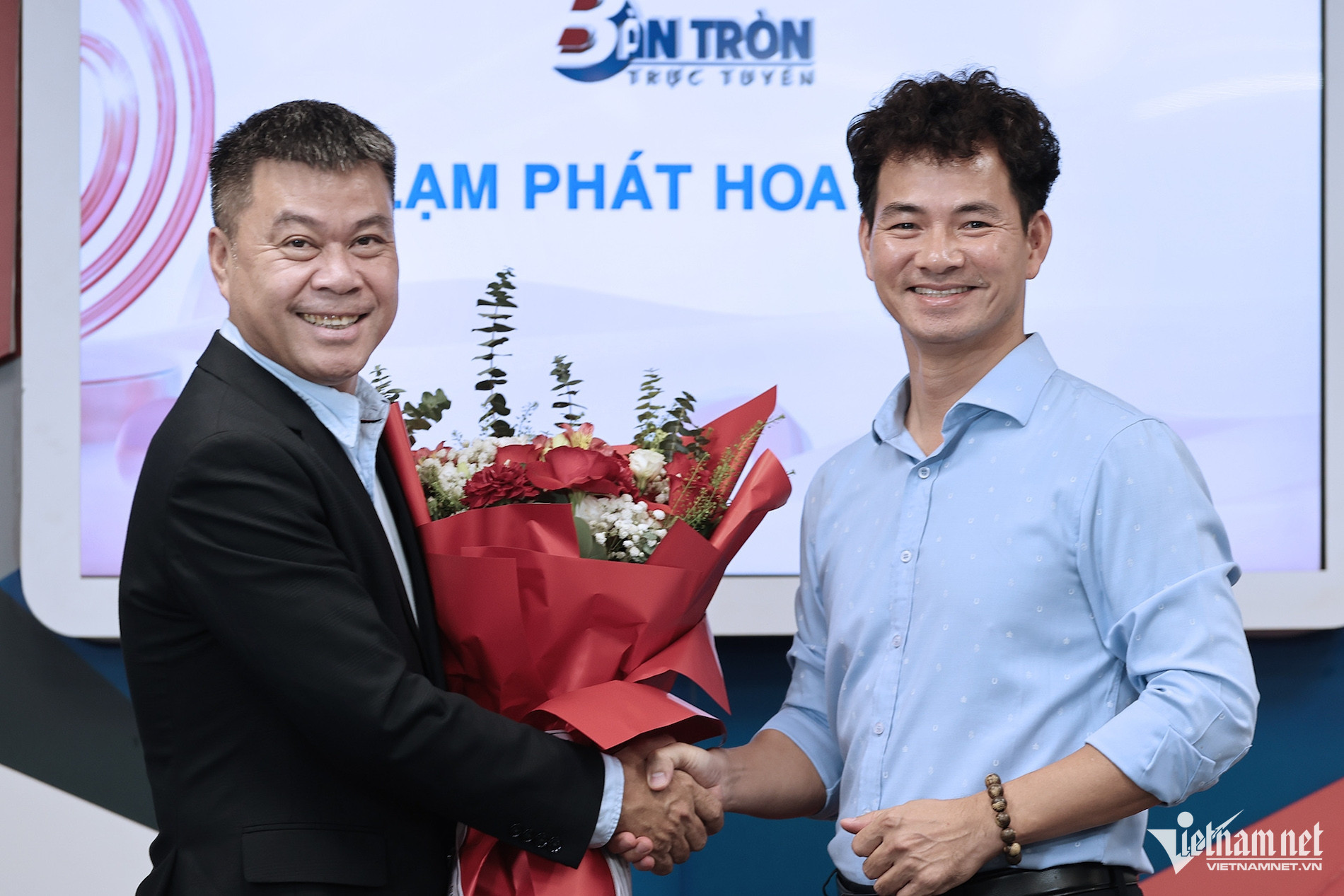"We cannot allow beauty pageants to be swept into a competitive environment like goods at a marketplace. They must be curated, organized, and regulated to ensure cultural appropriateness...," said People's Artist Xuan Bac, Director of the Department of Performing Arts (DPA).

At the roundtable discussion titled "Beauty Queen Overload" hosted by VietNamNet, People's Artist Xuan Bac shared candid insights from both his roles: a cultural policymaker and a man who appreciates beauty.
"I really love beauty queens - but I only need one, and she's at home taking care of our three children," he joked in his opening remarks.
From a personal perspective, he acknowledged the legitimate desire to celebrate beauty, even within small communities with their own criteria. However, when it comes to national titles representing Vietnamese women on the global stage, he emphasized that standards must be rigorous.
"We need a unified standard for beauty. We can't let each place do as it pleases, allowing the 'Miss' title to be overused to the point of ridicule," Xuan Bac said.
He expressed concern over the backlash some titleholders face, such as being mocked online for their appearance or accused of buying their titles. This, he argued, stems from overly lax criteria and organizational standards, reducing once-respected honors into online entertainment.
Legal reforms urgently needed
In his role as Director of the DPA, Xuan Bac shared that the agency has received directives from the Ministry of Culture, Sports and Tourism to urgently review and revise Decree 144, particularly the sections governing beauty and modeling contests.
"The current decree has shown its shortcomings. We are actively consulting experts, journalists, and organizers to ensure the revisions yield a vibrant legal framework - one that enables effective governance while encouraging healthy growth," he affirmed.
He pointed out that performing arts should not be treated as ordinary commodities, as they directly influence public perception and emotions.
"It's unfortunate that many now treat cultural products - which should be cherished and protected - as mere goods for exchange or sale. That's dangerous.
While there may be independent standards and criteria within small groups or communities, such as the long-standing and reputable Miss Vietnam contest by Tien Phong newspaper, state authorities and public stakeholders have a responsibility to guide these efforts.
Beauty pageants cannot be allowed to devolve into chaotic competition like goods at a marketplace. We must edit, organize, and regulate to ensure suitability and create conditions for proper development, without abandoning state management," he stressed.
Who deserves to represent Vietnamese beauty?

A key question posed by Xuan Bac was: Who has the authority to declare someone a "representative of Vietnamese beauty" at international pageants?
He noted that media headlines like "Vietnamese beauty shines on the global stage" often refer to contestants who were not officially approved or appointed by competent authorities.
"If there's no common standard, they should simply be introduced as 'a representative from Company A in Vietnam.' If someone is going to claim to represent the nation, they must embody the intellect, strength, and cultural identity of modern Vietnamese women - it cannot be arbitrary," he said.
He added that the misuse of beauty titles is causing public confusion. Some so-called "international pageants" lack legal transparency, making the selection of national representatives questionable.
"Are we 'diluting' or aiming to 'concentrate' our beauty queens? If we're diluting, have we reached the saturation point - or do we need 80 queens per year to call it enough? If we aim for meaningful distinction, then we need clarity on how many contests and titles per year are appropriate, so the recognition genuinely honors beauty. The goal isn’t to worship beauty queens, but to honor beauty and its value. When society recognizes those values, beauty contests will truly hold meaning," he explained.
He shared that the DPA frequently receives requests from local authorities seeking guidance on beauty contests. With a spirit of cooperation, the agency always provides support within its jurisdiction.
"I'm not blaming localities. In fact, many officials and staff at provincial departments are very diligent. When they encounter difficulties organizing pageants, they proactively seek advice from the DPA. If the issue falls under our management - especially relating to Decree 144, which we helped draft for the Ministry to present to the government - we always issue timely guidance. But as real-world situations evolve beyond the scope of current regulations, we must keep pace to prevent issues from spiraling," he added.
Xuan Bac emphasized the need to reorganize the beauty pageant system both legally and socially.
"A regulation only has value if it is practical and drives development. We are not drafting laws to restrict organizers, but to provide direction and create the right conditions for beauty to flourish," he said.
He also revealed that following the roundtable, the DPA would hold in-depth discussions with journalists, experts, and organizers to gather further input.
"I believe that if we all act responsibly and strive for genuine values, we’ll soon stop hearing phrases like 'beauty queen chaos' or 'title-buying scandals.' Instead, we’ll foster trust in dignified, well-run, and deserving beauty contests," Xuan Bac concluded.
VNN